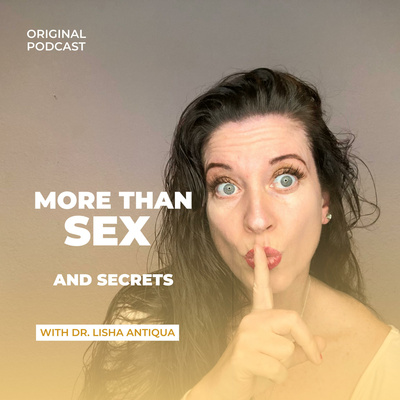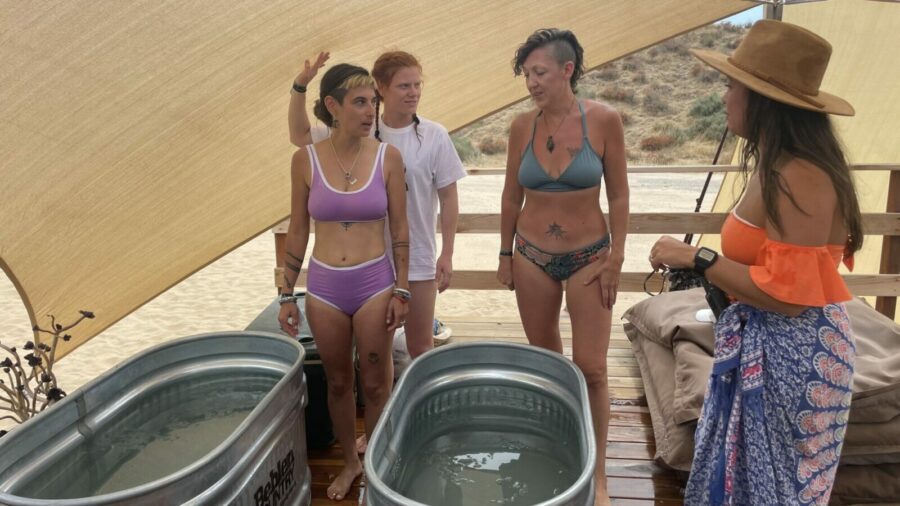“my mother
is pure radiance.she is the sun
i can touch
and kissand hold
without
getting burnt.”―
Every time I take my children to the pediatrician, I receive a lecture about the importance of keeping them out of the sun, lathering them head to toe in sunscreen and covering their bodies in clothing. However, this advice has never sat well with me. I grew up on a farm and have fond memories of spending all day outside during the summer months (without sunscreen and usually half naked). Since I was a teenager, I have been a long distance runner and have spent many hours outside in the blazing sun. I’ve never been a fan of covering up or wearing sunscreen because it just never felt right to me, despite what I learned in medical school.
Over the past year I’ve had a chance to delve deep into the literature on the sun and sun protection and what I found actually resonated with me on a deep level. But before we go into all the science and research, let’s just talk for a moment about common sense.
The sun is a star, and human beings are literally made of stardust. That means that we are kind of little baby suns walking around. On top of that, our planet and every living thing on it has evolved over billions of years because of the sun. It’s unlikely that we would have life on this planet without the sun. We literally owe our entire existence to this magical being. The sun provides us with nourishment, and according to Traditional Chinese medicine, the sun/fire supports us to manifest our loving, joyful nature. Being in touch with the sun allows us to feel joy, laughter, warmth, passion, and playfulness.
So, if the sun is the giver of all this goodness, how did it become the villain in our plot? If you talk to most traditional dermatologists and other doctors, they will tell you the same thing my pediatrician did. In order to prevent sun cancer and skin aging, we should avoid the sun at all costs and wear (potentially toxic) sunscreen or clothing if we have to go outside. Somehow, this has become the current narrative in medicine. The problem is that this is only one side of the story. Let’s start by examining the potential benefits of the sun.
- Sunlight stimulates your body to produce Vitamin D. This is a biggie and the more commonly known benefit of sunlight. Vitamin D is absolutely critical to your health and is important for protecting bones, immune function, heart health and mood. There are literally hundreds of reasons why you need to get adequate Vitamin D, but if you need yet another one, there is a lot of research supporting the use of Vitamin D to prevent and treat COVID-19. In addition, supplementing with oral vitamin D is a good idea, but studies have found that it’s not as effective as getting your Vitamin D from the sun.
- Sunlight regulates our neurotransmitters, hormones, sleep, circadian rhythms, mood, appetite and many other parameters critical for our health and well-being. There are hundreds if not thousands of studies that show that not getting enough sunlight every day can lead to depression, sleep disturbances, and just about every other mental health symptom.
- Sunlight actually improves our circulation, and supports our mitochondria and body’s ability to detoxify. This is a pretty big deal, and not getting adequate amounts of sunlight can cause a lot of problems with detoxification, leading to a build up of toxins in our body.
- Sun exposure actually decreases your risk for many severe health problems, including breast cancer, colorectal cancer, hypertension, cardiovascular disease, metabolic syndrome, multiple sclerosis, Alzheimer’s disease, autism, asthma, type 1 and type 2 diabetes and myopia.
- Insufficient sun exposure can lead to an early death! Studies in the past decade have found that inadequate sun exposure may be responsible for 340,000 deaths in the United States and 480,000 deaths in Europe. A huge study done in Sweden found that the risk of death from all causes doubled among women who tended to avoid the sun compared to women who got the greatest amount of UV exposure. Now that’s worth reading again!
Okay, so now you might be thinking, if there are so many huge benefits to sun exposure, why do most doctors recommend avoiding the sun like the plague? Well, there have been some legitimate concerns about sun exposure leading to skin cancer and of course sun aging and wrinkles. Let’s break down those concerns.
- Sun exposure causes melanoma. This is actually not entirely true. We now know that while INTERMITTENT sun exposure may put you at risk for having melanoma, moderate, regular sun exposure does not. In fact, regular, moderate exposure to the sun actually DECREASES your risk of developing melanoma. If you take anything away from this article, please remember the golden rule: moderate, regular sun exposure is GOOD! Not going out in the sun for 6 months and then spending a week on the beach in Miami is NOT a good idea! In addition, sunburns are never good and should always be avoided. Another important thing to understand here is that while intermittent sun exposure may put you at risk for getting melanoma, we now know that the story doesn’t end there. Around 30% of melanomas aren’t related to sun exposure at all. In addition, melanoma is now thought of as being an immune related condition. This means that it takes more than sun exposure to cause melanoma – there must be immune system dysfunction as well. Also, out of all of the skin cancers, melanomas are the most rare. They account for approximately 1% of all skin cancers. There is actually even more to this story but I will save it for another post.
- Chronic sun exposure causes basal cell cancers (BCCs) and squamous cell cancers (SCCs). This is actually probably true. However, and this is a BIG however, while removing BCC and SCC is no fun, the risk of actually dying from either cancer is low or non-existent. We know that with BCC, there is NO increased risk of mortality and with SCC, there is only a 1.25 increase in the risk of mortality. But wait, there’s more! Another large study from Denmark found that people who had been diagnosed with skin cancer actually experienced LOWER rates of heart disease and death compared to the general population. Yes, I said lower rates! The bottom line here is that while increased sun exposure may increase your risk of two skin cancers, your risk of actually dying from one of them, is pretty small (and it may even be associated with a decreased risk of death!) Also, you have to weigh this small risk against the long list of benefits above.
- Chronic sun exposure causes skin aging and wrinkles. This is probably true. However, whether or not you develop wrinkles goes beyond just sun exposure. It’s also related to genetics, diet, your sleep habits, and whether or not you smoke. And again, you have to consider all of the profound benefits of sun exposure. Are a few wrinkles worth avoiding depression, cancer, diabetes and death? Hmmmm, something to think about!
Now you may be thinking, if all of this is true, why do most doctors (especially dermatologists) advise everyone to stay out of the sun religiously? I believe it comes down to black and white (good or bad) reductionistic thinking. If we have tunnel vision and are only considering skin cancer and wrinkles, it makes sense to advise people to avoid the sun. However, if we step back and look at the big picture with a holistic lens, we can see that although there may be some risks associated with sun exposure, they pale in comparison to the potential benefits. Clearly, the issue is not black and white (maybe it’s yellow?!) There are many clear benefits to getting regular, moderate sun exposure, and at least to me, these clearly outweigh the potential risks.
Either way, I think we should be talking about this topic with our patients and families. As always, I believe in empowerment and giving you all of the information so you can make the choice that feels best for you.
As for me, I will continue to go outside every day for at least one hour with my family. I prefer to avoid sunscreens all together except in circumstances where I may be under the harsh sun for an extended period. In those cases, I will choose a non-toxic sunscreen or just use clothing to cover up. I know that if I don’t get regular sun exposure and spend time outside, my mood plummets and I can immediately see the negative impact on my mental and physical health. The bottom line is that for me, the small risks are absolutely worth the incredible benefits. Plus, I truly do believe in my heart that the sun is my bestie and has my best interests in mind!
In the words of the Beatles, I like to think “Here comes the sun do, do, do. Here comes the sun. And I say it’s all right.”
Author’s Note: Although I try to get one hour of sun exposure daily, I am not recommending this for everyone. You may want to get more or less, depending upon what feels right for your body. Variables that affect what’s right for you may include your distance from the equator, race/ethnicity, skin tone/color, previous sun exposure, general health and lifestyle factors.








Leave A Comment